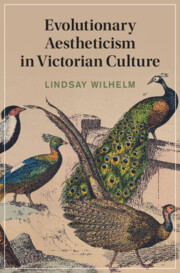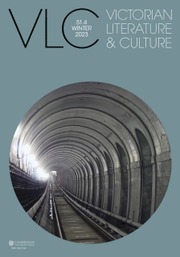Evolutionary Aestheticism in Victorian Culture
The Aesthetic Movement, a collection of artists, writers and thinkers who rejected traditional ideas of beauty as guided and judged by morals and utility and rallied under the banner of 'art for art's sake', are often associated with hedonism and purposelessness. However, as Lindsay Wilhelm shows, aestheticism may have been more closely related to nineteenth-century ideas of progress and scientific advancement than we think. This book illuminates an important intellectual alliance between aestheticism and evolutionism in late-nineteenth-century Britain, putting aesthetic writers such as Vernon Lee, Oscar Wilde and Walter Pater into dialogue with scientific thinkers such as Darwin and mathematician W. K. Clifford. Considering in particular how Aestheticism and scientific thinking converged on utopian ideas about beauty, Lindsay Wilhelm reveals how this evolutionary aestheticism crucially shaped Victorian debates about individual pleasure and social progress that continue to resonate today.
- Defines and historicizes an interdisciplinary intellectual tradition that linked the Aesthetic (or 'art for art's sake') Movement and post-Darwinian science, offering a fuller account of how each shaped nineteenth-century debates about pleasure, sex, social progress, and rationalism
- Brings close textual analysis and cultural studies to bear on a diverse archive of print material, both literary and scientific, and makes interdisciplinary Victorian discourses accessible to readers without background knowledge in biology or the history of science
- Helps to contextualize current-day debates about criticism, pleasure, and the role of “good taste” in establishing a more just and ecologically sustainable society
Product details
December 2024Adobe eBook Reader
9781009469333
0 pages
This ISBN is for an eBook version which is distributed on our behalf by a third party.
Table of Contents
- 1. On the origin of evolutionary aesthetics
- 2. Evolution, secular reverence, and the rise of aestheticism
- 3. The Utopian (r)evolutionism of Grant Allen and Oscar Wilde
- 4. Art for the sake of life: 'life-enhancing' aesthetics in the Fin de Siècle
- 5. Taste and cultural progress in Bloomsbury and beyond
- Coda: the critic as prophet.



